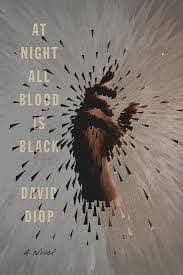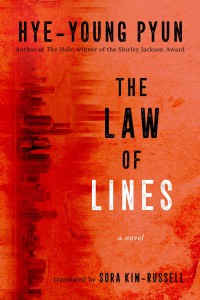Regular Asymptote readers will no doubt be familiar with the difficulties involved in sourcing the translated literature we all love. Thanks to small print runs, limited editions, and the vagaries of the publishing industry, it can be all but impossible to find certain books if you don’t live in their country of publication. Since moving to Portugal 6 years ago, I’ve really struggled to get my hands on books in English, and it’s a feeling shared by many who live here.
Lisbon and Porto have some wonderful bookshops, including Bertrand, the oldest in Europe, and Lello, often called the most beautiful bookstore in the world. But the selection of literature available in English is very small, typically the same few mass-market paperbacks and classics; and after Brexit, it became very difficult to even order English books through the mail.
Over the past few years, Portugal has also become home to a cosmopolitan mix of tourists, expats, immigrants, and refugees, with English becoming a lingua franca. And so, as the need arose, we assembled a like-minded team and got to work.
We designed Good Company to be a true home for curious readers, and our dream bookshop. Every book is chosen by our team to create a selection that represents our interests, tastes, and reading experience. And we are always available to give personal recommendations, or special order anything you can’t find in our regular catalog.

With Good Company, we also wanted to bring the bookstore-as-a-third-space concept to Lisbon, creating a place for everyone to gather and meet, whether they are buying a book or not. Located in the elegant Avenidas Novas neighborhood, we’re building a community space full of beautiful books, comfy seating, great coffee, and event space that’s open for all to use. Every part of the bookstore was considered, and we have worked entirely with local artists and materials in its construction.
Even the design of the website was important. Having a beautiful and well-stocked online bookstore was always a priority for us, as we know how difficult it is to access independent literature and other English books in Europe, and how unpleasant most corporate sites can be.
We’ve tried to bring some of that bookstore magic to your screen. We hope you enjoy the little details, like how each book’s page is color-matched to better display the cover art, or our curated booklists, which range from our team’s personal favorites to recent prize winners, to highlighting the best Lusophone authors in translation. We’ve launched with over 3200 books in our catalog, and are adding more each week.
Our online bookstore is live and currently shipping across Europe, and our physical store will be opening later this summer. Visit our website, browse our catalog, and if there’s any specific you’d like to order or you need a recommendation, just get in touch; we’d love to hear from you!
This is a sponsored post.





